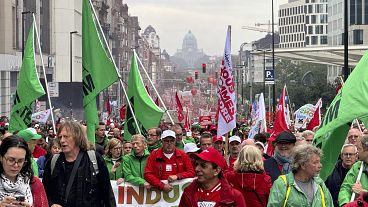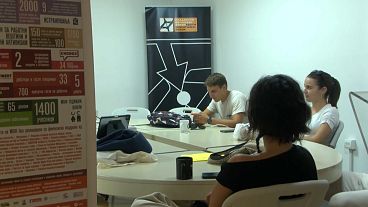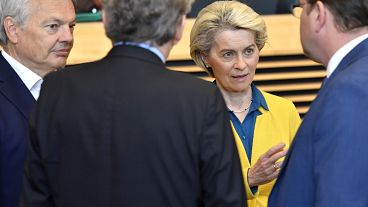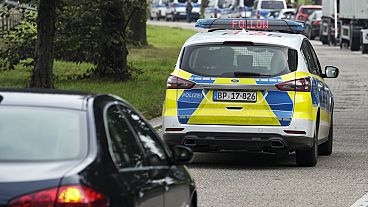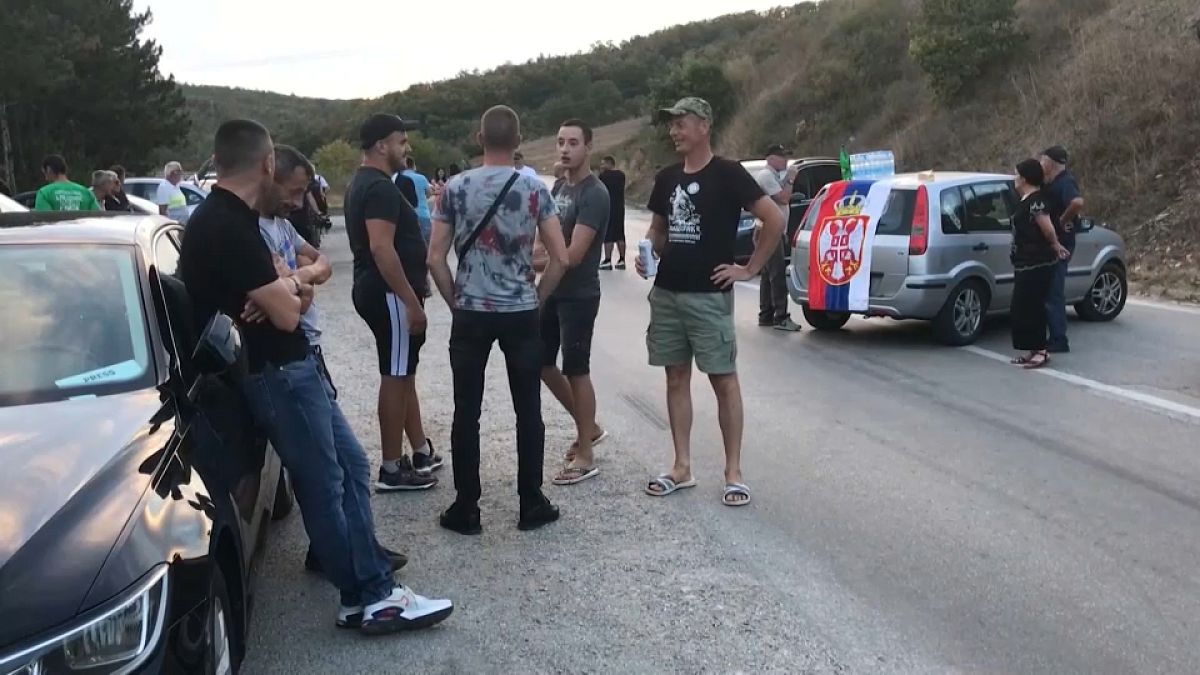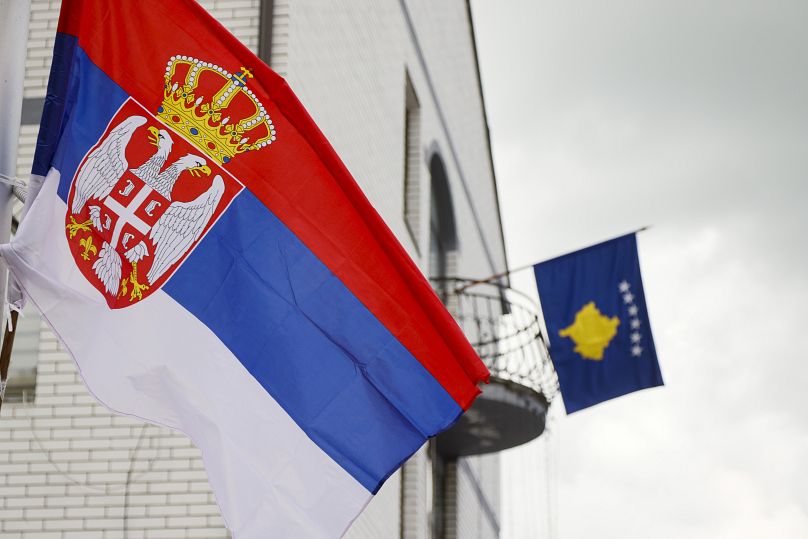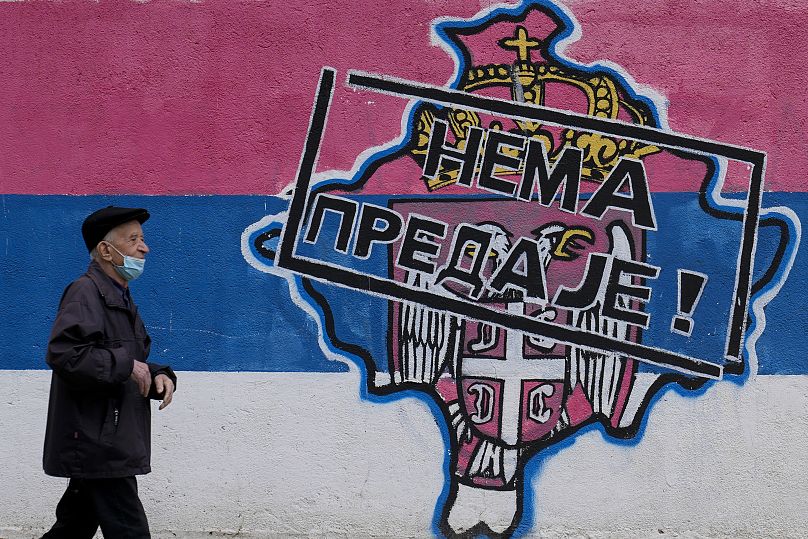Northern Kosovo, with a predominantly ethnic Serb population, has long been a flashpoint of tensions between Pristina and Belgrade and the border blockade comes on the same day an EU envoy said both sides should work to normalise relations if they hope to join the bloc.
Authorities in Kosovo say they have closed two of the four border crossings with Serbia after protesters on the Serbian side blocked the road and prevented motorists with Kosovo documents from passing through.
The now closed Brnjak and Merdare crossings are in Kosovo's north which has a majority ethnic Serb population.
Kosovo's Interior Minister Xhelal Svecla said the closures were in response to, "masked extremist groups in Serbia" selectively blocking transit for travellers.
Those remarks comes after reports emerged of activists from Kosovo and Serbia stopping traffic at the Brnjak border crossing and only allowing drivers with Serbian documents through.
"Those who have only Kosovar documents shall not pass. Why? Because our brothers and sisters in Kosovo cannot drive with documents issued by the Republic of Serbia," said Rojevic, the head of the Association of Citizens of Kosovo's Mitrovica District.
In the Serbian capital Belgrade, protesters boarded buses heading to the border to join in the blockade.
"The motivation is to help those people and support them. They should see they're not alone and that someone cares about them," said Gorica Doncic Puzovic.
Protesters stared blockading the border crossing late on Friday, stopping vehicles from traveling from Kosovo into Serbia.
They said that was in protest against the closure by Pristina authorities of parallel administrations that ethnic Serbs in northern Kosovo had set up to rival the official ones.
Serbia's government finances health, education and social security systems in Kosovo for the ethnic Serb population living in the north.
Serbian demonstrators told local media the blockade would last until Kosovo police officers were, "withdrawn from the north of Kosovo and the usurped institutions are returned to the Serbs".
Some have also demanded that KFOR, the NATO-led peacekeeping force in Kosovo, assume control over Kosovo’s northern region.
"An urgent appeal to KFOR and UNMIK [United Nations Interim Administration Mission in Kosovo] should be sent to northern Kosovo. We'll continue to protest here until the issue of northern Kosovo is resolved," said Serbian activist, Dragisa Miric.
Miric later said that protesters had lifted the blockade until 1 October and would wait to see if their demands are met before taking further action.
Northern Kosovo has long been a flashpoint for tensions between Belgrade and Pristina.
The blockade began just days after police in northern Kosovo raided and closed five administrative offices linked to the Belgrade government, further fuelling tensions.
And earlier this year, Kosovo made the euro the only legal currency in the country, effectively outlawing use of the Serbian dinar.
The border blockade started on the same day the European Union envoy for the Western Balkans urged both Kosovo and Serbia to step up efforts at normalising relations, saying such a move would be decisive toward the two countries joining the bloc.
Kosovo was a Serbian province until NATO's 78-day bombing campaign in 1999 ended a war between Serbian government forces and ethnic Albanian separatists in Kosovo, which left about 13,000 dead, mainly ethnic Albanians, and pushed Serbian forces out.
Serbia does not recognize Kosovo’s independence, proclaimed in 2008, and both sides have an uneasy relationship.

